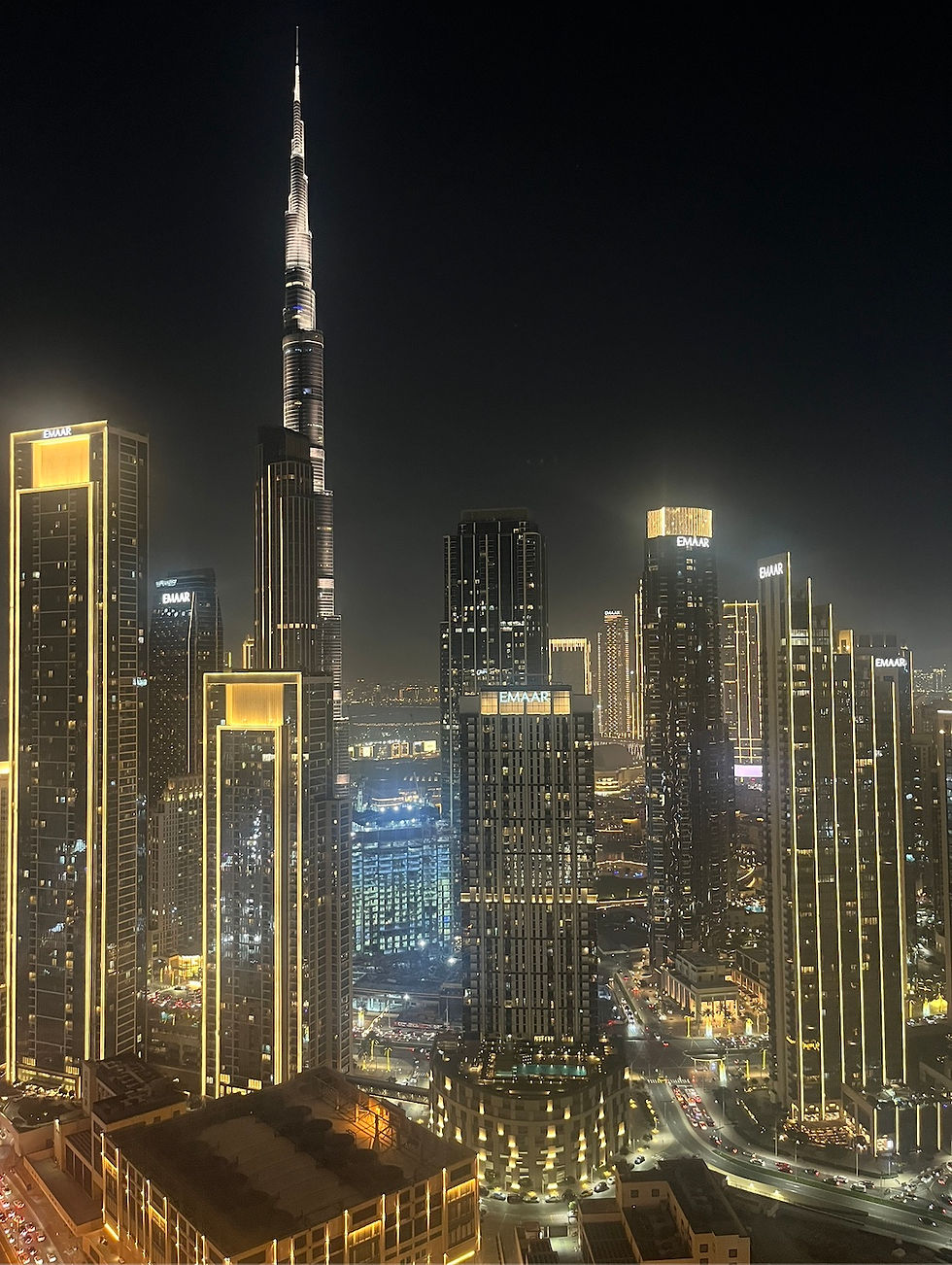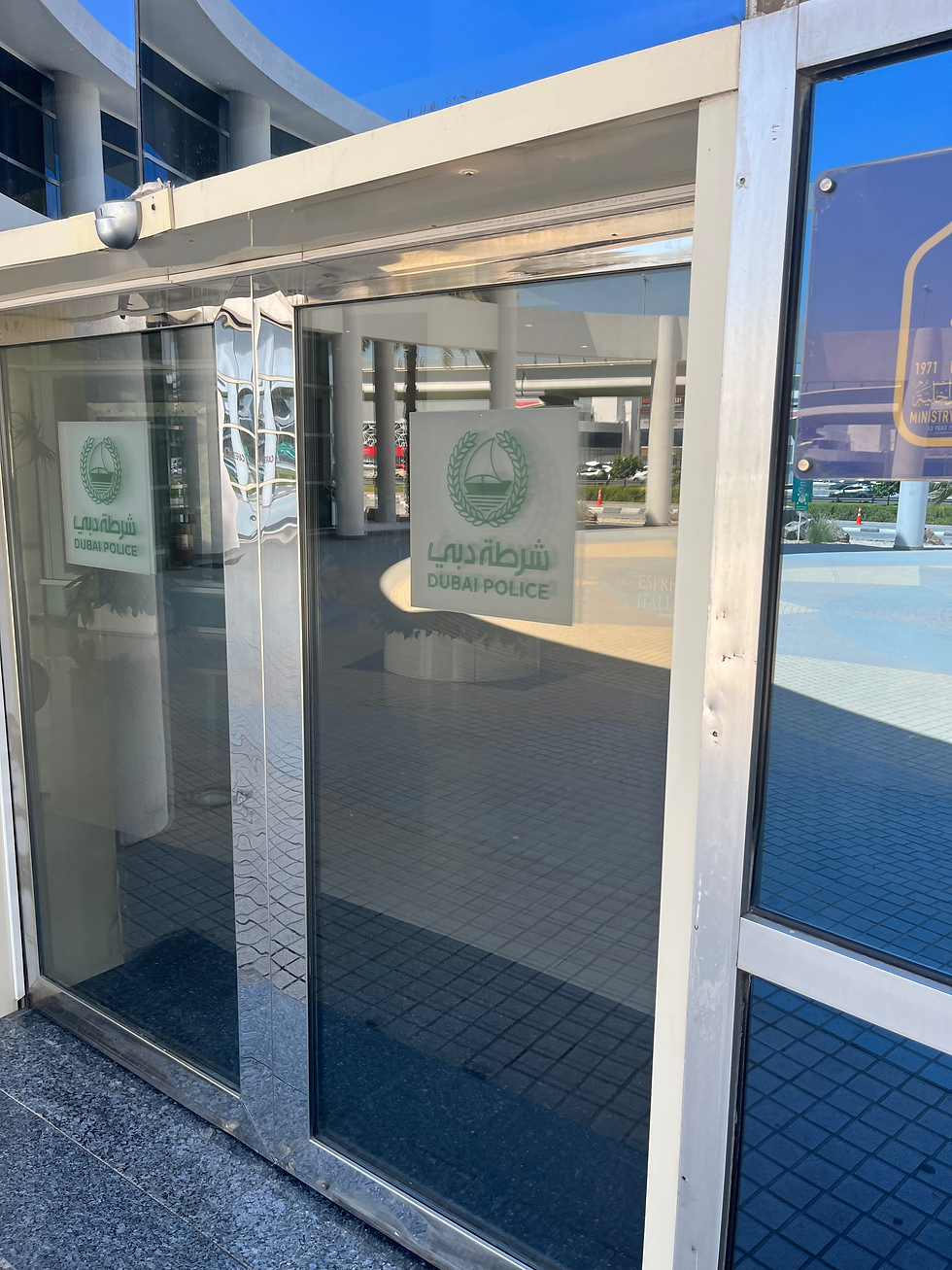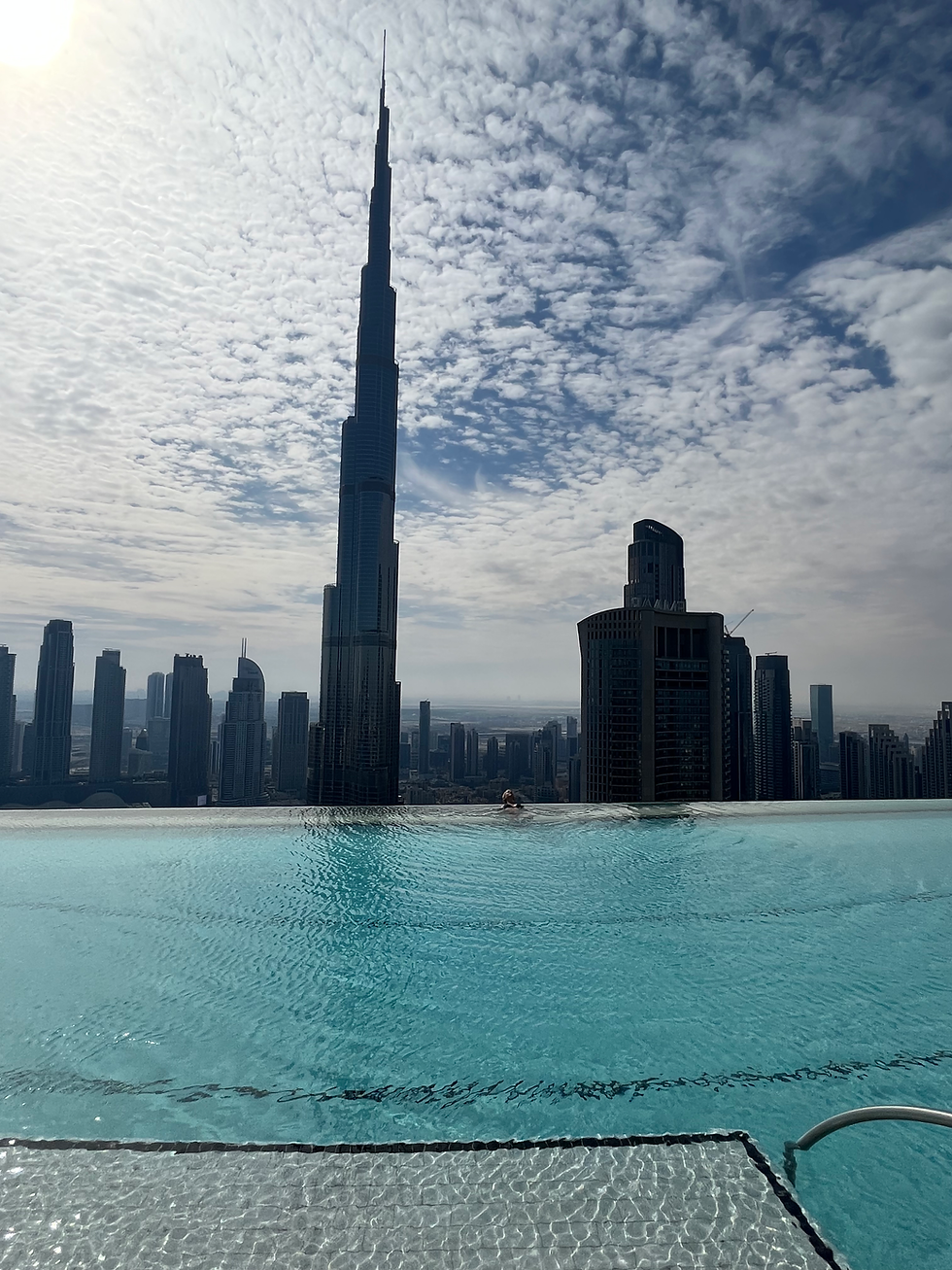Extradition from the UAE to Europe: A New Era of Cooperation
- Joint Defense Team

- Jul 20, 2025
- 7 min read
Updated: Jul 21, 2025

For years, Dubai offered a safe haven for fugitives from justice. Organised crime figures from Europe openly enjoyed the city’s luxury lifestyle “without fear of extradition” due to limited judicial cooperation. The UAE had no extradition treaties with most of Europe, meaning suspects wanted on Interpol Red Notices could be detained in Dubai yet not handed over to face trial abroad. This lack of formal agreements made the Gulf emirate a haven for some of Europe’s most notorious traffickers. However, recent developments mark a dramatic shift in the UAE’s extradition practice, ending what one headline dubbed the “Dubai dream” for Europe’s drug lords.
Turning Tide: Dubai No Longer a Safe Haven
Christian Lödden, one of Germany’s few defense attorneys highly specialized in Interpol red notice cases and international extradition and co-founder of the Joint Defense Team, has witnessed this change firsthand. “We are seeing a paradigm shift in the UAE’s approach,” Lödden observes. “Suspects who once felt untouchable in Dubai are now facing extradition. The era when a Red Notice arrest in the UAE did not lead to a handover is over.” Indeed, several high-profile arrests and extraditions in the past two years demonstrate that the tide has turned. In late 2024, Dubai authorities arrested an Irishman on an Irish extradition warrant, something virtually unheard of in earlier years. This case underscored the new reality: he was flown to Ireland in May 2025 by military aircraft, “the first extradition of its kind” from the UAE to Ireland.

What prompted this change is the UAE’s strategic push to strengthen judicial cooperation with Europe. “The UAE is committed to working with all its international partners to disrupt and deter all forms of global illicit finance,” a UAE government official told the press in late 2024. This commitment has translated into bilateral extradition treaties and a willingness to surrender suspects that would previously have found refuge in the Emirates. Christian Lödden notes that Dubai’s reputation as a consequence-free sanctuary has rapidly evaporated. “This development has effectively ended the ‘no extradition’ comfort zone that many fugitives relied upon,” he says, “sending a clear message that Dubai will no longer shield individuals from European justice.”
New Extradition Treaties UAE with European Countries
In recent years, the UAE has signed and implemented extradition agreements with numerous European states, paving the way for suspects to be returned to face charges. These accords form part of a broader effort by the UAE to shed its image as a laundering hotspot and to cooperate in fighting organised crime.
Key agreements include:
Ireland: After a decade of negotiations, an extradition treaty between Ireland and the UAE became operational in May 2025 (The above-mentioned handover proceeded via a special arrangement just before the treaty took effect) This treaty is Ireland’s first with the UAE and symbolises a new era of cooperation.
Belgium: A bilateral extradition treaty signed in 2021 between the UAE and Belgium enabled recent handovers. In July 2025, Dubai extradited a Belgian-Moroccan under the UAE-Belgium treaty. Belgian authorities hailed this as a breakthrough in tackling drug networks based in Dubai.
The Netherlands: The Netherlands and the UAE concluded an extradition and mutual legal assistance treaty, formally in force since August 2023. Shortly thereafter, in July 2024, Dubai extradited a Dutch national to the Netherlands on charges of drug trafficking and murder. Dutch prosecutors coordinated closely with Emirati officials under the new agreement.
Italy: The UAE and Italy have a longstanding extradition arrangement, recently invigorated. A bilateral treaty facilitated the extradition of Italian nationals such as an Italian citizen, who was arrested in Dubai in 2021 and sent back to Italy in March 2022. In 2024, Dubai also handed over financier another Italian citizen to Italy pursuant to their treaty, in a case of large-scale fraud. Officials from both countries praised this “strengthening cooperation in legal and judicial matters”
Denmark: An extradition agreement with Denmark was put into action when the UAE extradited British citizen to Denmark in 2023 in connection with a massive tax fraud scandal. This high-profile transfer demonstrated the UAE’s willingness to assist European nations beyond the EU framework (Denmark and the UAE agreed a treaty in 2022).
Germany: There is currently no bilateral extradition treaty between Germany and the UAE. And so far, no actual extradition to Germany has been reported. However, the first extraditions have now been approved by the highest courts in the UAE, so the first actual extradition to Germany is likely only a matter of time.
France, UK, Spain and others: The UAE has also concluded extradition pacts with France, the United Kingdom, Spain, and even non-EU countries like Ukraine. Not all of these have yet been tested with headline cases, but they indicate a broad commitment. (Notably, the UAE-UK extradition treaty has existed since 2008, though historically it was underused. Today, with the UAE’s proactive stance, even dormant agreements are gaining new life.)
These extradition treaties collectively cover virtually all major Western European jurisdictions. According to legal analysts, the UAE’s network of agreements now encompasses Italy, France, the UK, Denmark, the Netherlands, Spain, and many others. In practice, this means a person wanted in any of these countries can no longer assume Dubai is beyond the reach of the law.
First Extraditions under the New Agreements
The real proof of this cooperation is in the results. Over the past two years, the UAE has executed the first-ever extraditions of several Europeans who had sought refuge on its soil. These cases read like a who’s who of organised crime and financial fraud, indicating that no category of suspect is off-limits.
Each of these extraditions would have seemed unlikely – if not impossible – just a few years ago. Their execution underscores the new reality: the UAE is no longer a black hole where warrants vanish. Christian Lödden points out that these successful extraditions also involved careful legal coordination. “Extradition from the UAE is not automatic; it requires meeting the UAE’s legal standards and procedures,” he explains. UAE courts review each request under the federal Extradition Law of 2006, ensuring documentation is in order and dual criminality requirements (if any) are satisfied. Nonetheless, the trend is clear – when European authorities present a solid case, the UAE is now inclined to comply and surrender the suspect.
Implications for Suspects and Defendants
For individuals accused or convicted of crimes in Europe who are residing in the UAE, these developments carry profound implications. No longer can Dubai be seen as a permanent safe refuge from European arrest warrants. If a person is wanted in a European country that has an extradition agreement with the UAE, they face a real risk of arrest and extradition. Even in cases where no formal treaty existed in the past, the UAE has shown it can strike ad hoc arrangements to hand over suspects – as happened with Ireland for McGovern’s transfer.
Those who are subject to an Interpol Red Notice should be particularly cautious. An Interpol notice alone does not guarantee extradition, but it greatly increases the chance of detention in the UAE pending an official request. Now that legal frameworks are in place, a Red Notice in Dubai is far more likely to lead to a court-approved extradition, rather than a quiet release or deportation to a third country as may have occurred in the past.
From a defence perspective, timing and expertise are crucial. Once an arrest is made in the UAE, the window to legally contest the extradition or negotiate a resolution is limited. “It’s imperative for anyone detained in Dubai on a foreign warrant to engage experienced legal counsel immediately – both local UAE counsel and lawyers from the requesting country,” Christian Lödden advises. He stresses that challenges can sometimes be raised under UAE law (for instance, if the offence is political or if the suspect might face human rights abuses back home).
Lödden also notes that cooperative stance of the UAE means fugitives can no longer count on delay tactics. “We’ve seen Dubai police and prosecutors act very swiftly once a request is formalised,” he says. This means that if you have outstanding European warrants and reside in or travel to the UAE, you must be prepared for possible detention and court proceedings. The court process in the UAE will review the basics – confirming identity and that the treaty conditions are met – but will not re-try the underlying criminal allegations. If the requirements are satisfied, extradition is typically ordered.
Expert Support on the Ground in Dubai
As an expert in international extradition defence, Christian Lödden has made supporting clients in the UAE a cornerstone of his practice. He frequently travels to Dubai to assist individuals facing arrest or extradition there. “Being present on-site in the UAE is invaluable,” Lödden explains. “It allows our defence team to liaise directly with local lawyers and authorities, ensure our client’s rights are protected in the UAE courts, and coordinate strategy across jurisdictions.” Given the complex interplay of UAE law and foreign criminal law, having counsel experienced in both European and Emirati legal systems is now essential.

Lödden’s work with the Joint Defense Team – a network of leading European defence attorneys – ensures that clients have a coordinated strategy. For example, if someone is sought by authorities in Germany but detained in Dubai, Lödden can address the charges while simultaneously working with local counsel the UAE extradition hearing. This dual approach can sometimes open avenues such as negotiated voluntary return or other solutions that might not be apparent if one focuses on only one side of the case.
Ultimately, the message to individuals who once felt secure in the UAE is clear. No place – not even the glittering towers of Dubai – is beyond the reach of European law enforcement anymore. As Christian Lödden puts it: “The UAE’s recent actions show that if you are wanted abroad, you cannot assume you’re beyond justice. The wisest course is to confront the legal situation with the help of experienced counsel, rather than hope and wait.”

In summary, the UAE’s extradition practice has evolved from near non-existence to active collaboration. Multiple European nationals have already been sent back to face courts at home, under treaties with Ireland, Belgium, the Netherlands, Italy, Denmark, and more. This trend is expected to continue, given the UAE’s growing role in international policing (the country even holds a top position in Interpol’s leadership). For lawyers like Christian Lödden, staying ahead of these developments is part of providing effective defence. For those who are potentially affected, awareness and preparation are key. Dubai can no longer be relied upon as a permanent hideout – and seeking professional legal guidance is crucial to navigate this new extradition landscape.
More info on extradition can be found here.
